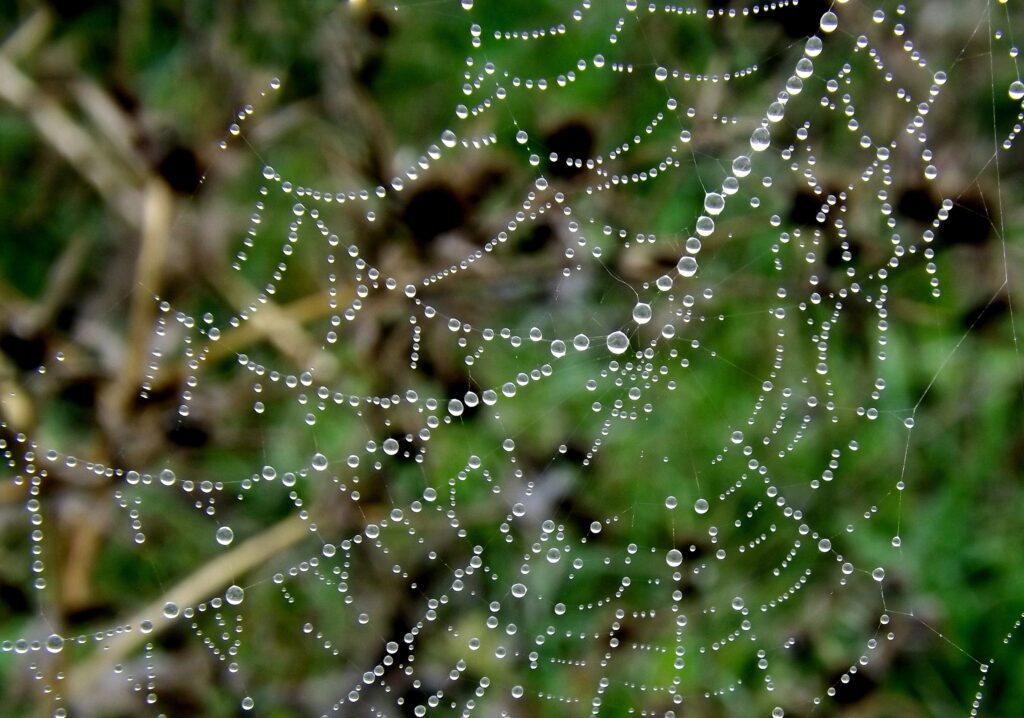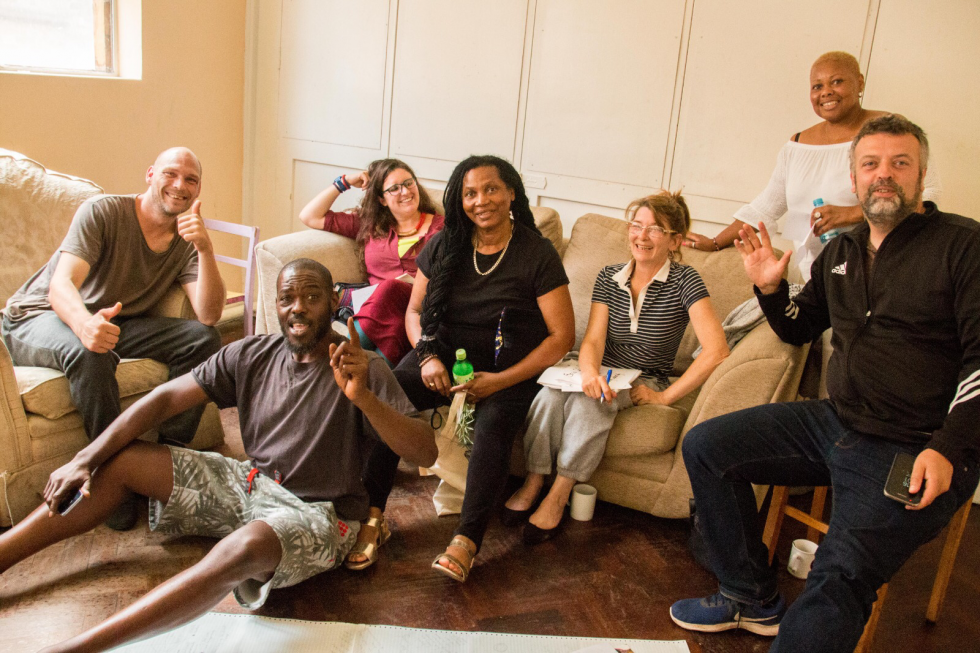There’s a widespread view that strengthening local communities will be crucial in the years ahead, to help us all to live with increasing levels of disruption, e.g. to food supplies, utilities, weather patterns, and probably social cohesion. During a recent pilgrimage walk, I was slowly pondering how we can learn to live with the impacts of the climate crisis and the many other troubles of our times. The idea that is bubbling up for me is adaptive networks.
Let’s consider two kinds of adaptive networks which could help us. One is adaptive communities as a subset within existing communities. I am deliberately using the word adaptive to link this to Deep Adaptation, because I believe we are now at a time when the breakdown of societal and economic systems, predicted by Jem Bendell in 2019, is starting to happen, and sadly is likely to accelerate. So we are approaching a time when we will need to apply Deep Adaptation principles in daily life, in our local communities.

My initial ideas about adaptive networks or communities would be along these lines:
Overall aim: To provide mutual support and create more collective resilience within a physical locality, to help face future disruption from climate change and other sources.
Material: Various forms of resource-sharing and mutual support on the material level could be explored, for example: growing food together, coordinating shared stocks of essential food supplies; sharing transport, equipment, etc.
Emotional: An adaptive network would recognise the need for mutual emotional support in these times, and would meet regularly to enable this, probably using processes such as the Work That Reconnects and methods from Deep Adaptation.
Inspirational: Jem Bendell, Joanna Macy and many others have highlighted how the climate crisis challenges us around finding meaning and purpose in life: an adaptive network would ideally help its members to explore this dimension, but without advocating any specific spiritual approach.
How about Adaptive Hamlets?
Imagine a community of 10-30 people, with 10-30 acres of land enabling them to grow much of their food, and also to grow fast-rotation biomass for heating. It could use Tiny Homes, which are a more ecological and comfortable equivalent of mobile homes, and this could make planning permission a lot easier.
These communities could use the cohousing approach, meaning that each personal household has their own private dwelling, but there are shared facilities, such as a large room for shared meals, meetings, parties, meditation, etc., along with guest rooms and workspaces. Such communities would be a lot more resilient and sustainable than the way most of us live, and could offer a role model for the future. They could also provide a Community Supported Agriculture supply to people nearby, and increase local resilience.
The adaptive hamlets concept seems a very sensible response to the current alarming state of things, and I am seeing a variety of projects, broadly along these lines, springing up in several locations across England and Wales. At present, there seems to be no umbrella network for these projects, and no single shared name. I will update this blog periodically as projects go public.
Resources
Books which may be relevant in exploring this terrain are How Everything Can Collapse by Servigne and Stevens, see my summary blog here, Creating a Life Together by Diana Leafe Christian, see summary blog here, and Navigating the Coming Chaos by Carolyn Baker, see summary blog here. We can see all through the sweep of history, and right now in the climate crisis, that humanity struggles to prepare for major impending challenges. Timing is one problem: floods, food shortages, power cuts and major storms are all likely in the next few years, but no one can say exactly when.

If you already have a group who’d like to explore creating an adaptive network, I can suggest some good material to help you develop relevant skills. This is the Future Conversations programmes, which I helped to develop and pilot in 2019. It’s a series of facilitated conversations to help members of a local community to build their skills, understanding, and action plans for resilience around climate change. These programmes can be done in person or online. If you’re looking online for projects you might join, or to find people to join you, a lot of the action is on Facebook. You could search here or on websites for tiny house and tiny homes. You could also check out these sites: www.cohousing.org.uk, www.communityledhomes.org.uk, and www.diggersanddreamers.org.uk.
What I am advocating here has nothing to do with escaping to the Hebrides or other extreme forms of prepping: I am suggesting the start of more resilient infrastructure and small land-based hamlets, which we can all learn from as problems increase. You may wonder why this can’t just be done by individual households: many of the shrewdest climate observers, including Jem Bendell and Charles Eisenstein, believe the collective dimension is crucial: for both emotional and material support. And having been part of collective food growing in a cohousing community, I think this group approach is more viable than smallholdings for individual households.
I am now looking for role models, lead indicators, and people to share this exploration with, both in my local community, and elsewhere. If any of this strikes a chord with you, please get in touch.
